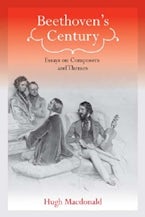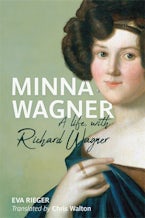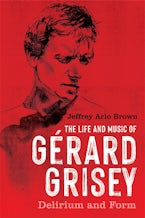
Title Details
306 Pages
22.8 x 15.2 cm
15 b/w, 20 line illus.
Series: Eastman Studies in Music
Series Vol. Number:
43
Imprint: University of Rochester Press
Mendelssohn, Goethe, and the Walpurgis Night
The Heathen Muse in European Culture, 1700-1850
- Description
- Contents
- Reviews
The first in-depth study of Mendelssohn's two settings of Goethe's Die erste Walpurgisnacht, in the context of scenes from Goethe's Faust and other works.
This paperback edition of Mendelssohn, Goethe, and the Walpurgis Night addresses tolerance and acceptance in the face of cultural, political, and religious strife. Its point of departure is the Walpurgis Night. The Night, also known as Beltane or May Eve, was supposedly an annual witches' Sabbath that centered around the Brocken, the highest peak of the Harz Mountains.
After exploring how a notoriously pagan celebration came to be named after the Christian missionary St. Walpurgis (ca. 710-79), John Michael Cooper discusses the Night's treatments in several closely interwoven works by Goethe and Mendelssohn. His book situates those works in their immediate personal andprofessional contexts, as well as among treatments by a wide array of other artists, philosophers, and political thinkers, including Voltaire, Lessing, Shelley, Heine, Delacroix, and Berlioz.
In an age of decisive political and religious conflict, Walpurgis Night became a heathen muse: a source of spiritual inspiration that was neither specifically Christian, nor Jewish, nor Muslim. And Mendelssohn's and Goethe's engagements with it offer new insightsinto its role in European cultural history, as well as into issues of political, religious, and social identity -- and the relations between cultural groups -- in today's world.
John Michael Cooper is Professor of Music at Southwestern University and author of Mendelssohn's "Italian" Symphony (Oxford University Press).
This paperback edition of Mendelssohn, Goethe, and the Walpurgis Night addresses tolerance and acceptance in the face of cultural, political, and religious strife. Its point of departure is the Walpurgis Night. The Night, also known as Beltane or May Eve, was supposedly an annual witches' Sabbath that centered around the Brocken, the highest peak of the Harz Mountains.
After exploring how a notoriously pagan celebration came to be named after the Christian missionary St. Walpurgis (ca. 710-79), John Michael Cooper discusses the Night's treatments in several closely interwoven works by Goethe and Mendelssohn. His book situates those works in their immediate personal andprofessional contexts, as well as among treatments by a wide array of other artists, philosophers, and political thinkers, including Voltaire, Lessing, Shelley, Heine, Delacroix, and Berlioz.
In an age of decisive political and religious conflict, Walpurgis Night became a heathen muse: a source of spiritual inspiration that was neither specifically Christian, nor Jewish, nor Muslim. And Mendelssohn's and Goethe's engagements with it offer new insightsinto its role in European cultural history, as well as into issues of political, religious, and social identity -- and the relations between cultural groups -- in today's world.
John Michael Cooper is Professor of Music at Southwestern University and author of Mendelssohn's "Italian" Symphony (Oxford University Press).
The Cultural and Religious Prehistories
Tolerance, Translation, and Acceptance: Goethe's and Mendelssohn's Voices in European Cultural Discourse to ca. 1850
Reality and Illusion, Past and Present: Goethe and the Walpurgisnacht
The Composition, Revision, and Publication of Mendelssohn's Die erste Walpurgisnacht
The Sources, Structure, and Narrative of Mendelssohn's Walpurgisnacht Settings
At the Crossroads of Identity: Critical and Artistic Responses to Goethe's and Mendelssohn's Walpurgisnacht Treatments
Preforming Identity and Alterity: Die erste WalpurgisnachtThen and Now
Tolerance, Translation, and Acceptance: Goethe's and Mendelssohn's Voices in European Cultural Discourse to ca. 1850
Reality and Illusion, Past and Present: Goethe and the Walpurgisnacht
The Composition, Revision, and Publication of Mendelssohn's Die erste Walpurgisnacht
The Sources, Structure, and Narrative of Mendelssohn's Walpurgisnacht Settings
At the Crossroads of Identity: Critical and Artistic Responses to Goethe's and Mendelssohn's Walpurgisnacht Treatments
Preforming Identity and Alterity: Die erste WalpurgisnachtThen and Now
"Commanding and authoritative. . . Will be particularly valuable to conductors and musicians performing the cantata." Peter Hoyng, GERMAN STUDIES
"Stimulating and informative . . . generously illustrated by excerpts from the score. . . The book has much to offer, in particular, to English-speaking readers without a command of German and unfamiliar with the Walpurgis Night origins and legends, who will appreciate the historical frame and the generous translation of key texts. Scholars of German literature will profit from the rigorous musicological analysis." Meredith Lee, GERMAN QUARTERLY
"[Mendelssohn, Goethe, and the Walpurgnis Night] seeks to . . . provide the foundation for a comprehensive overhaul of our view of the composer. . . Cooper's detailed discussions of the music are complemented by a wide-ranging investigation of the work's reception. . . It was an inspired move . . . to open the section on reception with a comparison of the posthumous reputations of Goethe and Mendelssohn." James Garratt, NINETEENTH-CENTURY MUSIC REVIEW
"The lure of sorcery and witches' Sabbaths . . . [told by Cooper] with fluency, enthusiasm and an eye for detail." Hugh Macdonald, TIMES LITERARY SUPPLEMENT
"An outstanding piece of scholarship. . . .Entirely successful. . . . Argues convincingly for a Mendelssohn engaged with culture, informed about his thinking, and -- most important -- willing and eager to take artistic risks in order to not only state his opinions but also build bridges. . . The use of illustrations in early publications is especially illuminating." Siegwart Reichwald, MUSIC LIBRARY ASSOCIATION NOTES
"Dozens of excellently selected illustrations. . . Thoughtful and warmly written. . . .Its] themes are interwoven in an imaginative, careful way, made to come alive for readers familiar or not with the book's topics. . . A rich vein indeed." Peter Williams, MUSICAL TIMES
"A highly entertaining and authoritative account of the Walpurgis Night tradition in European culture, and of Mendelssohn's cantata, which Berlioz praised for the 'perfection' of its interweaving of voices and instruments. The author blends skillfully history, criticism, musical analysis, and source studies to shed new light on Mendelssohn's perhaps most provocative, and unjustifiably neglected, work." R. Larry Todd, Arts & Sciences Professor of Music, Duke University, and author of Mendelssohn: A Life in Music
Paperback
9781580463683
September 2010
$38.95 / £30.99
Ebook (EPDF)
9781580466912
May 2007
£24.99 / $29.95
Title Details
306 Pages
2.28 x 1.52 cm
15 b/w, 20 line illus.
Series: Eastman Studies in Music
Series Vol. Number:
43
Imprint: University of Rochester Press













